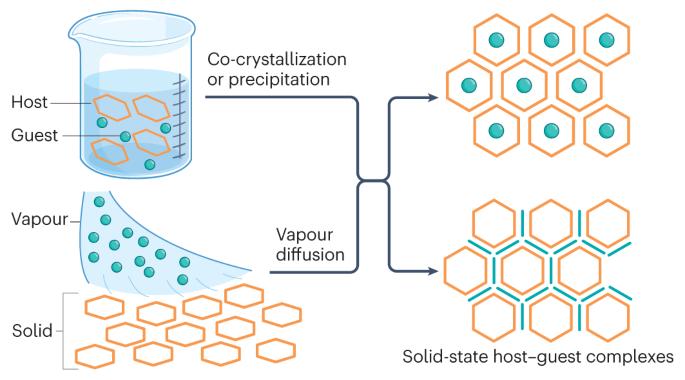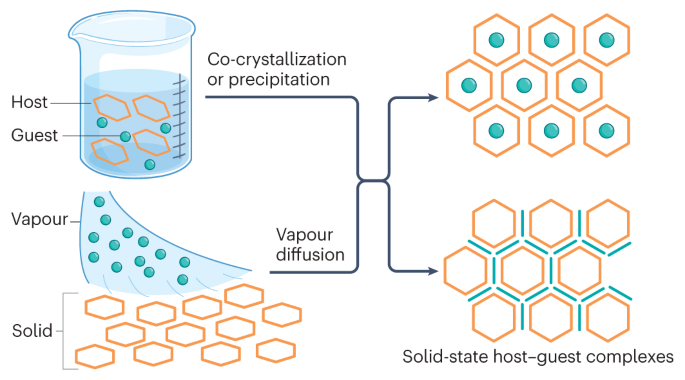Applications of macrocycle-based solid-state host–guest chemistry
IF 38.1
1区 化学
Q1 CHEMISTRY, MULTIDISCIPLINARY
引用次数: 0
Abstract
Macrocyclic molecules have been used in various fields owing to their guest binding properties. Macrocycle-based host–guest chemistry in solution can allow for precise control of complex formation. Although solution-phase host–guest complexes are easily prepared, their limited stability and processability prevent widespread application. Extending host–guest chemistry from solution to the solid state results in complexes that are generally more robust, enabling easier processing and broadened applications. Macrocyclic compounds in the solid state can encapsulate guests with larger affinities than their soluble counterparts. This is crucial for use in applications such as separation science and devices. In this Review, we summarize recent progress in macrocycle-based solid-state host–guest chemistry and discuss the basic physical chemistry of these complexes. Representative macrocycles and their solid-state complexes are explored, as well as potential applications. Finally, perspectives and challenges are discussed. This Review compares the macrocycle-based host–guest chemistry in solution and in the solid state and illustrates related physical chemistry laws. Recent progress about applications of solid-state host–guest chemistry in the fields of adsorption, separation, optical materials and stimuli-responsive systems is also discussed.


基于大环的固态主客体化学的应用。
大环分子由于其与客体结合的性质而被应用于各种领域。溶液中基于宏观循环的主客体化学可以精确控制复合物的形成。尽管溶液相主客体复合物很容易制备,但其有限的稳定性和可加工性阻碍了其广泛应用。将主客体化学从溶液扩展到固态会产生通常更坚固的复合物,从而实现更容易的加工和更广泛的应用。固态大环化合物可以以比可溶性化合物更大的亲和力包裹客体。这对于分离科学和设备等应用至关重要。在这篇综述中,我们总结了基于大环的固态主客体化学的最新进展,并讨论了这些配合物的基本物理化学。探索了具有代表性的大环及其固态配合物,以及潜在的应用。最后,讨论了前景和挑战。
本文章由计算机程序翻译,如有差异,请以英文原文为准。
求助全文
约1分钟内获得全文
求助全文
来源期刊

Nature reviews. Chemistry
Chemical Engineering-General Chemical Engineering
CiteScore
52.80
自引率
0.80%
发文量
88
期刊介绍:
Nature Reviews Chemistry is an online-only journal that publishes Reviews, Perspectives, and Comments on various disciplines within chemistry. The Reviews aim to offer balanced and objective analyses of selected topics, providing clear descriptions of relevant scientific literature. The content is designed to be accessible to recent graduates in any chemistry-related discipline while also offering insights for principal investigators and industry-based research scientists. Additionally, Reviews should provide the authors' perspectives on future directions and opinions regarding the major challenges faced by researchers in the field.
 求助内容:
求助内容: 应助结果提醒方式:
应助结果提醒方式:


